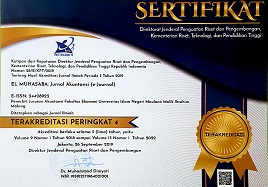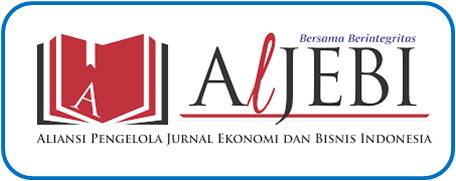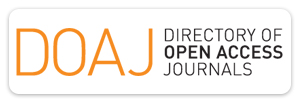TINGKAT PENGETAHUAN AKUNTAN MUDA DALAM MENJAGA EKSISTENSI AKUNTANSI SYARIAH GUNA MENYONGSONG INDONESIA EMAS 2045
Abstract
Accounting has undergone many developments in line with efforts to adapt to the needs of stakeholders. This development can be seen from the introduction of sharia-based accounting principles with the emergence of many sharia transactions offered by sharia entities. This is the background for the birth of SAK Syariah which was ratified in 2007. With the development of studies on Islamic accounting in Indonesia, accountants are required to equip themselves with good knowledge of Islamic accounting. Therefore, this study aims to determine the Islamic accounting knowledge of young accountants in order to welcome Indonesia Golden era 2045 in terms of their knowledge of Islamic accounting. This research is a descriptive study using a quantitative approach with a survey method. The results found that the knowledge of sharia accounting possessed by young accountants was still considered less ready to contribute to realizing Indonesia Golden era 2045. It was also found that the factors that led to the lack of knowledge of sharia accounting experienced by young accountants namely: lack of literature, lack of practice-based learning, lack of educators who are experts in their fields, religious stereotypes, assumptions are the same as conventional accounting. Furthermore, this study suggests optimizing young accountants' understanding of Islamic accounting in addition to conventional accounting. This is beneficial for efforts to develop Islamic accounting in Indonesia and for Islamic institutions to be able to present financial reports correctly and adequately.
Keywords
Full Text:
PDFReferences
Ardian, M. (2013). Sikap Masyarakat Surabaya Terhadap Program Acara “Pesbukers” di ANTV. Jurnal E-Komunikasi, 1(1), 1‾11. http://publication.petra.ac.id/index.php/ilmu-komunikasi/article/view/113.
Alwi, I. (2015). Kriteria Empirik dalam Menentukan Ukuran Sampel Pada Pengujian Hipotesis Statistika dan Analisis Butir. FORMATIF: Jurnal Ilmiah Pendidikan MIPA, 2(2), 140‾148. http://dx.doi.org/10.30998/formatif.v2i2.95.
Arwani, A. (2016). Profesi Akuntan Syariah Indonesia Memasuki Masyarakat Ekonomi Asean (MEA). Muqtasid: Jurnal Ekonomi Dan Perbankan Syariah, 7(1), 163. https://doi.org/10.18326/muqtasid.v7i1.163-184
Dongoran, F. R. (2014). Paradigma Membangun Generasi Emas 2045 dalam Perspektif Filsafat Pendidikan. Jurnal Tabularasa PPS UNIMED, 11(1), 61–76. http://jurnal.unimed.ac.id/2012/index.php/tabularasa/article/view/3336
Ernawati, I., & Sukardiyono, T. (2017). UJI KELAYAKAN MEDIA PEMBELAJARAN INTERAKTIF PADA MATA PELAJARAN ADMINISTRASI SERVER. Elinvo (Electronics, Informatics, and Vocational Education), 2(2), 204–210. https://doi.org/https://doi.org/10.21831/elinvo.v2i2.17315
Hariyanto, E. (2017). Memahami Project Based Sukuk ( PBS ). 5. http://www.djppr.kemenkeu.go.id/uploads/files/Kajian_Artikel_DJPPR/Memahami PBS.pdf
Helmi, A. (2015). Komparasi Pembiayan Pembangunan Infrastruktur Pemerintah Dengan Dana Obligasi Konvensional Dan Obligasi Syariah / Sukuk (Studi Kasus Pembangunan Jalan Tol Trans Sumatera). Yogyakarta: UIN Sunan Kalijaga. TESIS, h. 1-85.
Himawati, S., & Subono, A. (2009). PRAKTIK AKUNTANSI DAN PERKEMBANGAN AKUNTANSI SYARIAH DI INDONESIA. Sosial Budaya, 2(2), ISSN 1979-6889. http://jurnal.umk.ac.id/?page_id=443
Ikatan Akuntan Indonesia. (2020). Membership - IAI Global. In Ikatan Akuntan Indonesia. http://iaiglobal.or.id/v03/keanggotaan/ca_aktif/home
Indriantoro, N. & Supomo, B. (2018). Metodologi Penelitian Bisnis Untuk Akuntansi dan Manajemen. Edisi 1. Cetakan ke-1. Yogyakarta: ANDI Publisher.
Manullang, B. (2013). Grand Desain Pendidikan Karakter Generasi Emas 2045. Jurnal Pendidikan Karakter, 3(1), 1‾14. https://doi.org/10.21831/jpk.v0i1.1283.
Nieuwsbericht. (2019). Indonesia Halal Economy and Strategy Roadmap 2018/2019 Launched. Indonesia Halal Lifestyle Center (Online), (https://agroberichtenbuitenland.nl/landeninformatie/indonesie/nieuws/2019/04/02/indonesia-halal-economy-and-strategy-roadmap-2018-2019-launched), diakses 22 Agustus 2021.
Laporan Pengembangan Keuangan Syariah Indonesia (LPKSI) .(2018). Otoritas Jasa Keuangan (Online), (https://ojk.go.id/id/kanal/syariah/data-dan-statistik/laporan-perkembangan-keuangan-syariah-indonesia/Pages/2018.aspx), diakses 22 Agustus 2021.
Rahmanti, V. N. (2012). Sebuah Kajian Mengapa Akuntansi Syariah Masih Sulit Tumbuh Subur di Indonesia. Journal of Accounting and Investment, 13(2), 161–179. https://journal.umy.ac.id/index.php/ai/article/view/486/622
Rosaliza, M. (2015). Wawancara, Sebuah Interaksi Komunikasi dalam Penelitian Kualitatif. Jurnal Ilmu Budaya, 11(2), 71–79. https://doi.org/https://doi.org/10.31849/jib.v11i2.1099
DOI: https://doi.org/10.18860/em.v13i1.13489
Refbacks
- There are currently no refbacks.
Editorial Office:
Megawati Soekarnoputri Building
Accounting Department, Faculty of Economics
Jln. Gajayana 50 Telp (0341) 558881
E-mail: elmuhasaba@uin-malang.ac.id
Universitas Islam Negeri Maulana Malik Ibrahim Malang
E-ISSN 2442-8922
P-ISSN 2086-1249

This work is licensed under a CC BY SA 4.0 International License

















